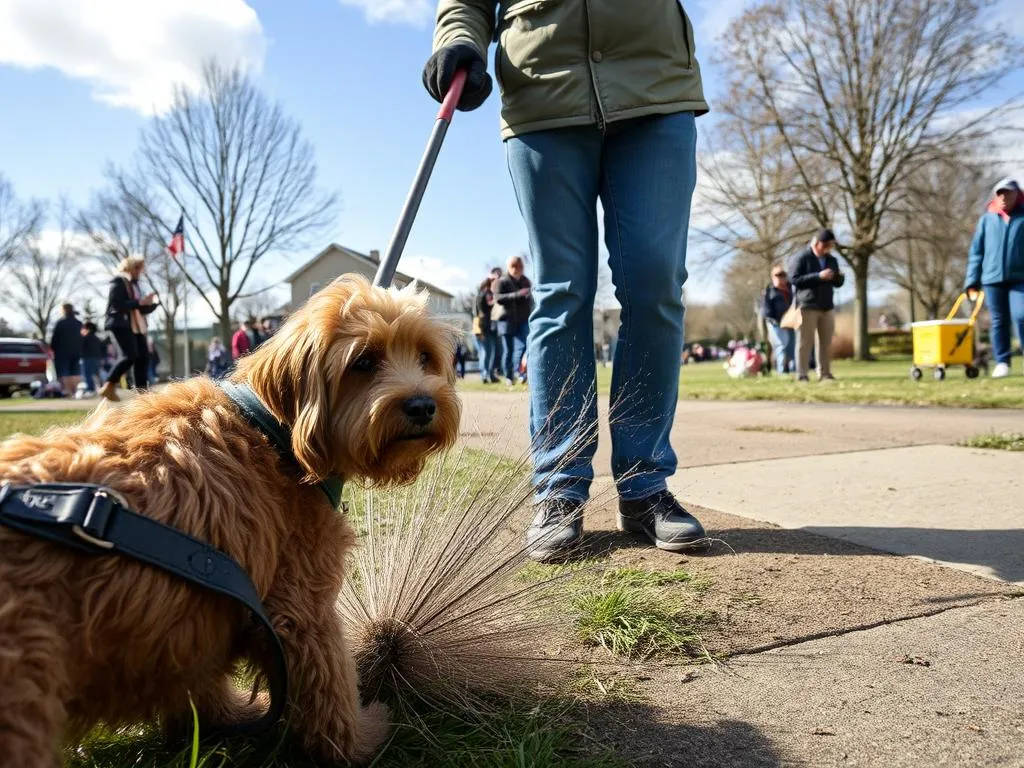
Introduction
International Pooper Scooper Week is an event that encourages pet owners to take responsibility for their pets’ waste. Established with the goal of promoting cleaner neighborhoods and healthier environments, this week serves as a reminder of the impact pet waste can have on our communities. The significance of this week lies not only in raising awareness but also in fostering a culture of responsibility among pet owners.
As we delve deeper into the various aspects of this observance, you’ll discover the importance of responsible pet ownership, community involvement, and the tools available for effective waste management. The essence of this week is not just about cleaning up after our furry friends—it’s about creating a healthier, cleaner world for everyone.
The Origins of International Pooper Scooper Week
History and Background
International Pooper Scooper Week was established in the early 2000s by pet advocacy groups and concerned citizens who recognized the growing issue of pet waste in urban and suburban areas. The initiative aimed to create a dedicated time for pet owners to focus on the importance of cleaning up after their pets. Key organizations involved in its inception included local animal shelters and environmental groups, who saw an opportunity to enhance community engagement while promoting responsible pet ownership.
Evolution Over the Years
Since its inception, International Pooper Scooper Week has evolved significantly. Initially celebrated by a small group of advocates, the observance has grown to include various community events, educational campaigns, and partnerships with local businesses. Over the years, participation has increased dramatically, with many cities and towns hosting events to raise awareness about responsible pet ownership and waste management.
Importance of Responsible Pet Ownership
Understanding Pet Waste Management
Proper waste disposal is crucial for multiple reasons. Firstly, pet waste can attract pests and contribute to the spread of diseases among pets and humans alike. Fecal matter can harbor harmful bacteria and parasites that pose health risks, such as Giardia and Toxocara canis. By managing pet waste effectively, pet owners can help mitigate these health risks for themselves and their communities.
Environmental Impact
The environmental impact of pet waste is profound. Statistics show that a single dog can produce anywhere from 1/4 to 1/3 of a pound of waste per day. When left unattended, this waste can contaminate soil and waterways, leading to pollution and harm to wildlife. Additionally, pet waste contributes to nutrient overload in water bodies, resulting in harmful algal blooms that can affect aquatic ecosystems.
Ways to Celebrate International Pooper Scooper Week
Community Events and Involvement
Celebrating International Pooper Scooper Week can take many forms, particularly through community events. Local parks can host clean-up days where pet owners come together to tidy up public areas. Organizing a neighborhood clean-up not only fosters community spirit but also sets a positive example for responsible pet ownership.
Partnerships with local pet stores can also be beneficial. Many stores may offer discounts on waste disposal products during this week, encouraging pet owners to stock up on necessary supplies. Creating flyers or social media posts to promote these events can help spread the word.
Personal Initiatives
On a personal level, there are numerous ways to participate in International Pooper Scooper Week. Organizing a neighborhood clean-up is a great start, but individuals can also take the initiative to educate their friends and family about the benefits of responsible waste management. Simple actions, such as sharing tips on social media or providing waste disposal bags to neighbors, can create a ripple effect of awareness and accountability.
Tools and Resources for Pet Waste Management
Recommended Tools
Having the right tools can make pet waste management easier and more efficient. There are various types of pooper scoopers available, including traditional scoops, bag dispensers, and even automatic scoopers. Each tool has its advantages, such as ease of use or convenience, so pet owners should choose based on their specific needs.
In addition to scoopers, waste disposal bags are essential. Biodegradable options are available, which are better for the environment compared to traditional plastic bags. Composters specifically designed for pet waste can also be a sustainable choice for those looking to reduce their environmental footprint.
Educational Resources
To further educate oneself about pet waste management, various resources are available. Websites dedicated to pet care often have sections on responsible pet ownership, including waste management. Local organizations and animal shelters frequently offer workshops or seminars on this topic, making it easier for pet owners to learn about best practices.
The Role of Local Governments and Organizations
Policies and Regulations
Local governments play a significant role in promoting responsible pet ownership and managing pet waste. Many municipalities have established laws requiring pet owners to clean up after their pets in public spaces. These regulations are essential for maintaining community cleanliness and public health.
Furthermore, local governments often support International Pooper Scooper Week by organizing events, providing waste disposal stations in parks, and promoting educational campaigns. Citizens can help by staying informed about local laws and advocating for more resources dedicated to pet waste management.
Community Programs
Successful community programs can serve as models for others looking to promote responsible pet ownership. For instance, some areas have implemented pet waste disposal stations in parks, equipped with bags and disposal bins. These stations encourage pet owners to clean up after their pets while also providing easy access to the necessary tools.
Additionally, community organizations may offer incentives for pet owners who regularly clean up after their pets, such as discounts at local pet stores or recognition in community newsletters. Residents can get involved by participating in clean-up efforts or joining local advocacy groups focused on responsible pet ownership.
Health Benefits of Keeping Pet Areas Clean
Health Risks of Neglecting Pet Waste
Neglecting pet waste can lead to serious health risks for both pets and humans. Common diseases associated with pet waste include roundworms, hookworms, and parvovirus, all of which can be transmitted through contaminated soil or water. By properly disposing of pet waste, pet owners can significantly reduce the risk of these diseases spreading within their communities.
Psychological Benefits of a Clean Environment
Beyond health considerations, maintaining cleanliness in pet areas can also positively impact mental well-being. A clean environment contributes to a more enjoyable and stress-free outdoor experience for pet owners and their pets. Studies have shown that a tidy community can enhance overall quality of life and foster a sense of pride among residents, leading to greater community involvement.
Testimonials and Case Studies
Success Stories
Communities across the globe have embraced International Pooper Scooper Week with great success. For instance, a neighborhood in Portland, Oregon, organized a week-long series of events, including educational workshops and community clean-ups. Residents reported a noticeable improvement in the cleanliness of their streets and parks, along with a stronger sense of community spirit.
In another example, a pet advocacy group in Toronto launched a campaign during International Pooper Scooper Week that involved local schools. Children learned about responsible pet ownership and participated in clean-up events, leading to increased awareness among families. Many parents noted that their children were eager to help remind them about cleaning up after their pets.
Before and After Scenarios
Visual representation can be a powerful tool in demonstrating the impact of responsible pet ownership. Before and after photos from community clean-up events highlight the significant improvements made through collective efforts. These images serve as inspiration for others, showcasing the benefits of taking action and participating in initiatives like International Pooper Scooper Week.
Conclusion
Participating in International Pooper Scooper Week is not just about keeping our surroundings clean; it’s about fostering a sense of responsibility and community spirit. By getting involved, pet owners can contribute to better health for their pets, their families, and the environment. Sharing experiences and encouraging others to take part can amplify the message of responsible pet ownership, creating a lasting impact in our neighborhoods.
As we observe this special week, let’s remember that our actions—big or small—can lead to meaningful change. The broader implications of responsible pet ownership extend beyond individual households; they resonate within the community and the environment. So, let’s rally together and make a commitment to cleaner, healthier spaces for all.









